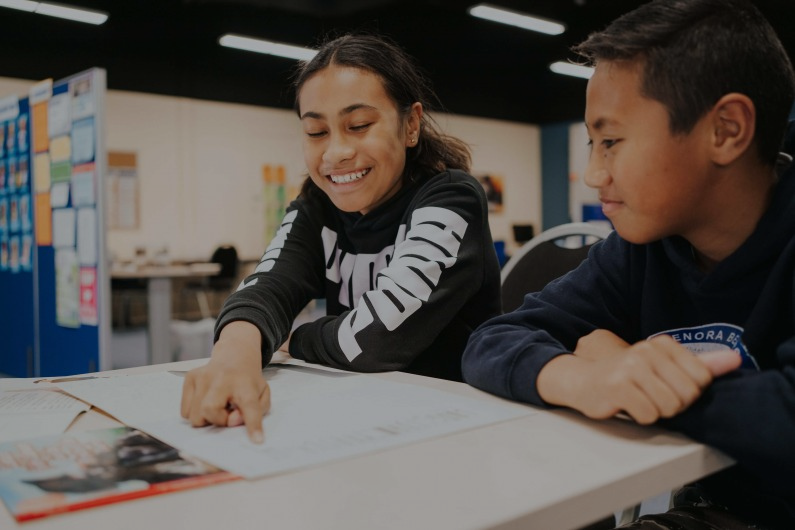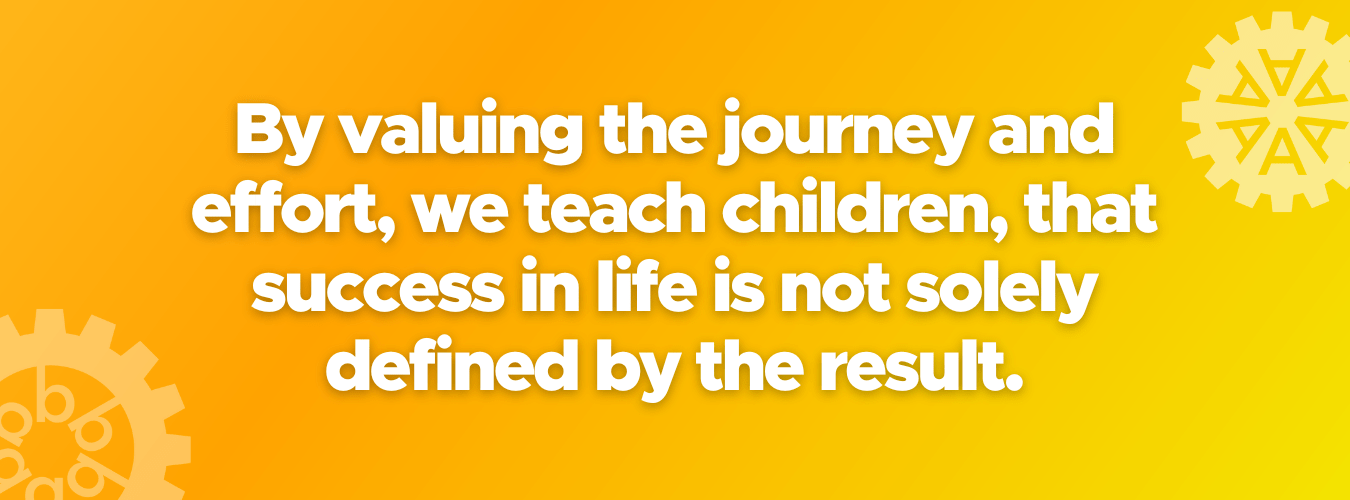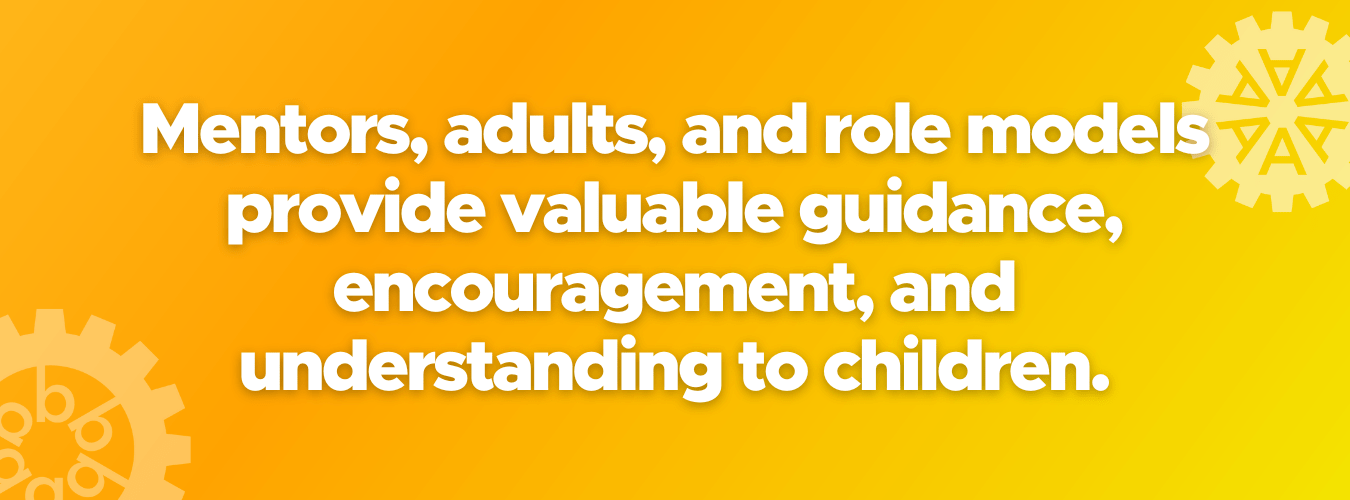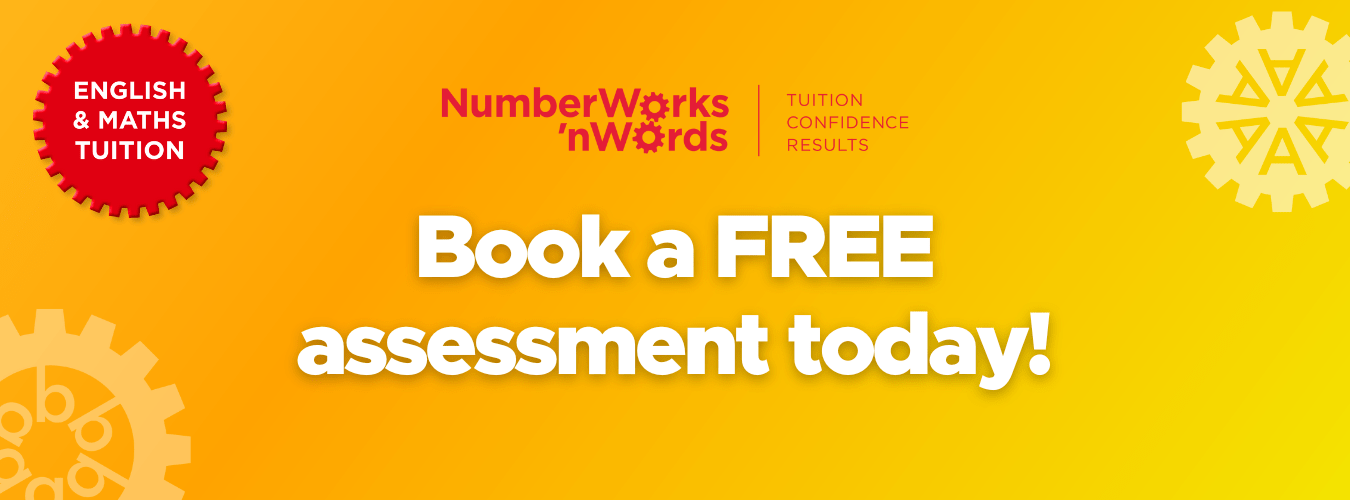How to Build Confidence in Children

Confidence is a vital component of a child's learning and development journey. When children have self-assurance, they are more willing to explore new opportunities, take pride in their achievements, and persevere in the face of challenges.
Confidence is a key driver of success, making it essential for children to see confident people believe in themselves and their abilities. As parents and educators, we feel confident we possess valuable strategies to boost children's confidence and foster their self-esteem. In this blog, we will explore effective techniques to help children build confidence and become resilient learners.
Is your child struggling to keep up with schoolwork? Are they falling behind? Are they bored in class? Or are you looking for extension work for your child? Check out our eBook to learn more about how we help your child improve academically and build confidence through our in-centre after-school tuition.
Embrace Imperfection
Failure and setbacks are inevitable aspects of the learning process. It is crucial to embrace imperfection and teach children that making mistakes is an opportunity for growth. Although our natural inclination as parents is to shield our children from failure, it is through trial and error that they truly learn and develop resilience.
Instead of protecting our kids from obstacles, guide them to understand that everyone makes mistakes and that it is an integral part of the journey towards success. By allowing children to fail and make mistakes and emphasising the importance of learning from those experiences and trying again, we help them become confident and resilient learners and successful adults who are unafraid of failure and adept at overcoming setbacks.
Celebrate Effort and Success
Celebrating a child's effort and success is a powerful way to boost their self-confidence and demonstrate that their hard work is acknowledged. These celebrations are more than mere feel-good moments; they are opportunities to instil confidence and motivation and nurture their personal growth. There are numerous ways to celebrate a child's success, such as by providing rewards, offering positive reinforcement, or simply recognising and appreciating their achievements daily.
By acknowledging and celebrating their accomplishments, we imbue them with a sense of high self-esteem and confidence and the motivation to pursue their goals with unwavering determination. As children grow, each journey they undertake becomes a vital step towards their destination. Life is filled with ups and downs, and adults need to teach children the significance of appreciating and recognising their efforts, regardless of the outcome.
For instance, in a football game, whether your child scores a goal, or kicks the ball out of bounds, make sure to celebrate and applaud their efforts. This teaches children that long-term success is built on consistent effort and resilience.

Treat Mistakes as Building Blocks
Mistakes and failure can often be demoralising and disheartening for children. However, it is essential to shift our perspective and view mistakes as valuable opportunities for young children to learn, grow, and develop confidence. Encourage your child to make mistakes occasionally, and guide them in understanding how they and other children can learn from those mistakes and overcome disappointments.
These "uh-oh" moments serve as invaluable opportunities to cultivate confidence and resilience in young children and significant adults. By educating our children not to fear failure, we equip them with the necessary tools to view mistakes as building blocks for growth.
Provide Positive Affirmation and Praise
There is tremendous power in providing children with positive affirmation and praise. These simple, daily reminders inspire confidence and build a strong foundation of self-assurance. Take notice of your child's strengths, interests, and accomplishments, and make a conscious effort to express how proud you are of them through positive praise and affirmations. It is equally important to focus on their strengths as it is to address their weaknesses.
By leveraging these opportunities to feel positive about others, we help children develop a positive, good self-esteem-image model of confidence and instil confidence in themselves and their abilities. For example, if you feel proud when your child achieves a good grade at school, you can praise effort. You could say, for example, "I am incredibly proud of you for your good grades and your achievements." Affirmations and praise strengthen a child's self-esteem, nurture a positive mindset, and boost their confidence in their capacity to achieve their goals.

Focus on Strengths to Build Self-Esteem
As educators, we understand the significance of addressing skill gaps and weaknesses in children. However, it is equally important to recognise and nurture their strengths. Pay close attention to their areas of expertise, hobbies, and subjects they excel in. By focusing on their strengths, we empower children to feel good about themselves and their abilities.
This fosters a sense of confidence and for confident children and adults, it encourages them to embrace their unique talents. Whether it's a hobby or a focus on a particular subject in school, providing opportunities for children and adults to develop and shine in areas where they excel helps build their confidence and enhance their self-esteem.
Foster a Growth Mindset for Confident Children
Teaching children to adopt a growth mindset can have a profound impact on their confidence. Help them understand that their abilities and intelligence can be developed through effort, practice, and learning from mistakes. Encourage them to view challenges as opportunities for growth and to embrace the learning process.
By emphasising the importance of effort and perseverance over solely focusing on outcomes, we assist children in developing resilience and confidence in their ability to overcome obstacles, take on new tasks, get new skills, solve problems, and continuously improve.
Encourage Self-Reflection and Goal-Setting
Promoting self-reflection and goal-setting greatly contributes to building children's confidence. Encourage your child to take the time to reflect on their past accomplishments and identify areas where they excelled. This self-reflection enables them to recognise their strengths and further boosts their confidence.
Additionally, help your child set realistic goals that they are confident they can work towards. When they achieve these goals, it reinforces their belief in their worth and abilities and fosters a sense of accomplishment. By engaging in self-reflection and goal-setting, children learn to develop a sense of purpose, experience the satisfaction of achieving objectives, and build confidence in their capabilities.

Provide Opportunities for Leadership and Responsibility
Granting children opportunities to assume leadership roles and responsibilities is a powerful way to build their confidence. Whether it involves leading a group project, organising a family event, or taking charge of a household chore, these experiences allow children to develop decision-making skills, problem-solving abilities, and effective communication. Taking ownership of tasks and witnessing the positive outcomes of their efforts bolsters their confidence in their capabilities and motivates them to take on new challenges.
Promote a Supportive and Inclusive Environment
Creating a supportive and inclusive environment is essential for building confidence in children. Foster a culture of respect, kindness, and empathy in your home or classroom. Encourage children to celebrate each other's successes and offer support during setbacks. Teach them the value of teamwork and cooperation, emphasising that everyone's contributions are important.
By promoting inclusivity, you ensure that all children feel valued and accepted, which enhances their self-esteem and confidence. Additionally, provide opportunities for children to engage in collaborative activities where they can learn from and support each other. Creating a positive and inclusive environment fosters a sense of belonging and encourages children to express themselves confidently, knowing they are accepted and supported by their peers.
Mentorship
Not all children naturally possess confidence, which is why seeking external support, such as a mentor or role model, can be beneficial in cultivating their self-assurance. Mentors provide educational and personal guidance and are especially valuable for children who lack confidence or tend to be shy and reserved.
Mentorship programmes offer age-appropriate support that aims to boost children's confidence and self-esteem. Mentors understand their child mentees and provide understanding and encouragement to the child to help children under the age of five develop confidence and overcome self-doubt.

Encourage New Challenges
As parents, our instinct is to protect our children and keep them safe. However, we hold the power to nurture kids and develop their confidence by exposing them to new challenges that push their limits.
Encouraging children to step out of their comfort zones and explore new experiences helps them develop resilience, self-assurance, and the ability to cope with difficult situations. By overcoming their fears and embracing novel experiences, children build confidence and acquire the skills necessary to navigate life's obstacles.
Confidence is a vital attribute that contributes to a lifetime of resilience, determination, and accomplishments for children. As parents and educators, it is our privilege and responsibility to nurture confidence in our children. By implementing the strategies discussed in this guide, we can boost confidence and help children become resilient learners, empowering them to face challenges, do new things, embrace growth, and unlock their full potential.
At NumberWorks'nWords, we recognise the importance of building confidence in children. Our comprehensive math and English tuition programs are designed to help young learners develop confidence and resilience and reach their academic goals.
If you notice your child's lack of confidence or identify gaps in their learning, our personalised and engaging tuition programs can provide young children with the support they need. Contact your local NumberWorks'nWords centre or book a free assessment to discover how we can help your child become a confident and resilient learner.




